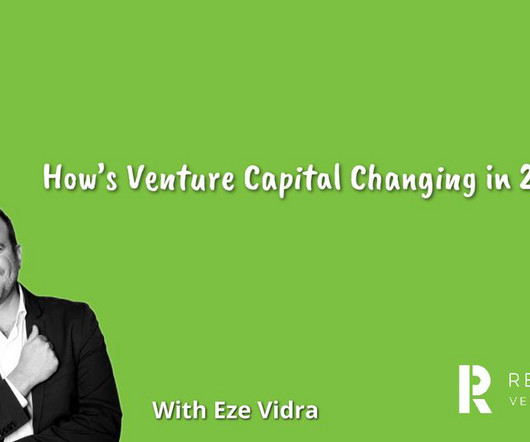How’s Venture Capital Changing in 2023
VC Cafe
FEBRUARY 27, 2023
This is what an institutional investor was quoted (anonymously) in the latest Emerging Mangers report by Vauban: We identified what performs best – and that’s small funds. Maybe surprisingly, but emerging managers in particular, outperformed ‘blue chip’ funds from 2004 to 2020. Don’t just take it from me.













Let's personalize your content